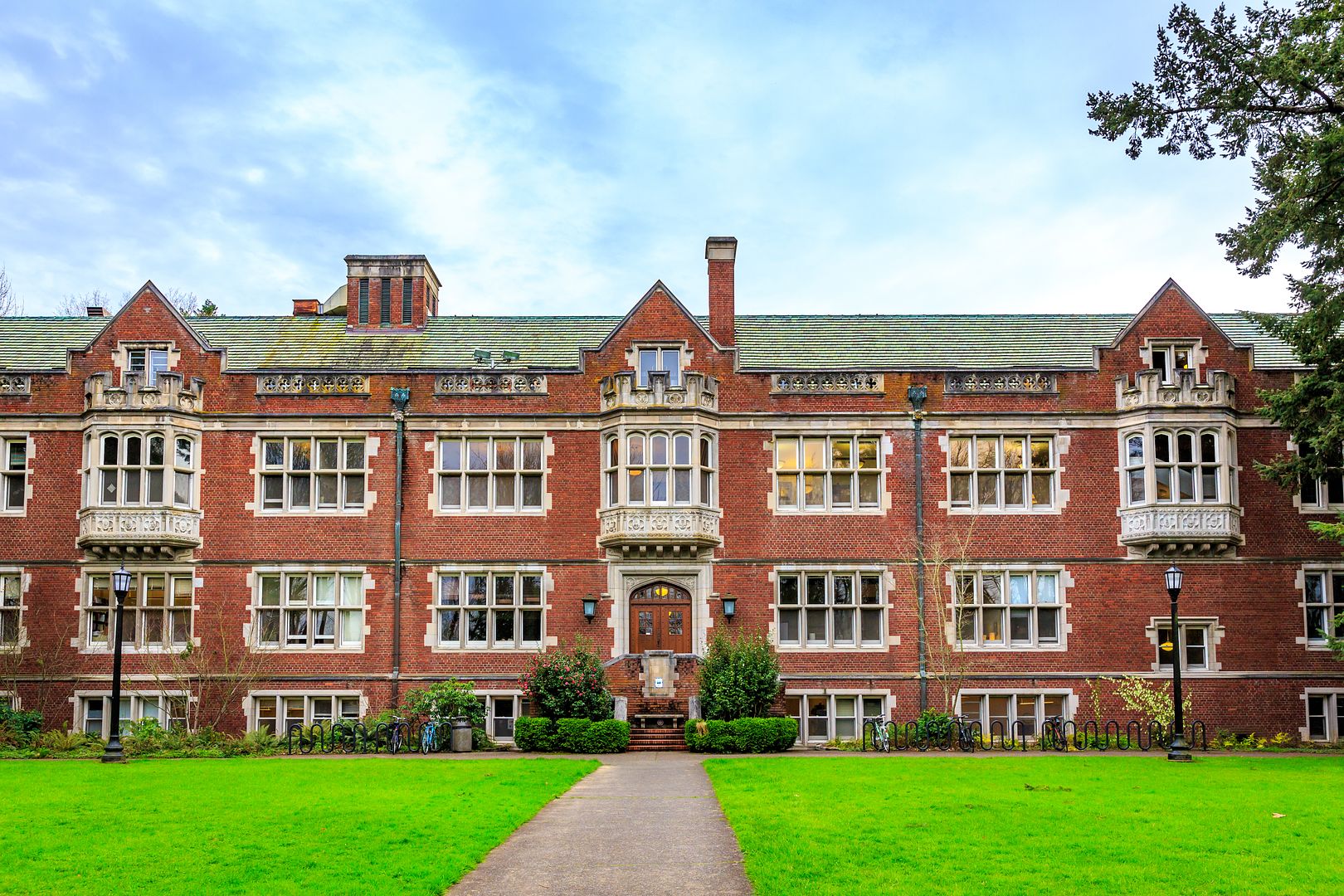Quote of the Day:
Reed is just one college—and a small one at that. But the freshman revolt against [Reedies Against Racism] could be a blueprint for other campuses. If the “most liberal student body” in the country can reject divisive racial rhetoric and come together to debate a diversity of views, others could follow.
— from "The Surprising Revolt at the Most Liberal College in the Country" in The Atlantic
The Atlantic has an encouraging story on students at Reed College beginning to push back against activists who disrupt lectures and try to shut down free speech.
Founded early in the twentieth century, Reed has a reputation for being academically demanding and one of the most liberal in the U.S. If a movement to support free speech can happen here, maybe it can happen anywhere?
The Oregon college has a required freshman humanities class–Hum 110–that features a broad range of readings from Greek poets to Bob Dylan. Hum 110 was particularly offensive to Reedies Against Racism, a campus activist group. RAR issued a set of demands, many of which dealt with Hum 110, which the group found Euro-centric and racist. The Atlantic's Chris Bodenner described RAR's complaints:
But to RAR, Hum 110 is all about oppression. “We believe that the first lesson that freshmen should learn about Hum 110 is that it perpetuates white supremacy—by centering ‘whiteness’ as the only required class at Reed,” according to a RAR statement delivered to all new freshmen.
The texts that make up the Hum 110 syllabus—from the ancient Mediterranean, Mesopotamia, Persia, and Egypt regions—are “Eurocentric,” “Caucasoid,” and thus “oppressive,” RAR leaders have stated. Hum 110 “feels like a cruel test for students of color,” one leader remarked on public radio. “It traumatized my peers.”
. . .
A Hum protest is visually striking: Up to several dozen RAR supporters position themselves alongside the professor and quietly hold signs reading “We demand space for students of color,” “We cannot be erased,” “Fuck Hum 110,” “Stop silencing black and brown voices; the rest of society is already standing on their necks,” and so on. The signs are often accompanied by photos of black Americans killed by police.
So far, this sounds depressingly like what has happened on many college campuses where students try to drown out discourse and also to portray western civilization as inherently racist. But something unexpected happened at the nation's most liberal college: students protested RAR's dictatorial affront to free inquiry. Bodenner talked to students who were turned off by RAR:
The most popular public forum at Reed is Facebook, where social tribes coalesce and where the most emotive and partisan views get the most attention. “Facebook conversations at Reed bring out the extreme aspects of political discourse on campus,” said Yuta, a sophomore who recently co-founded a student group, The Thinkery, “dedicated to critical and open discussion.”(The Atlantic used first names for students out of concern for online harassment.) Raphael, the founder of the Political Dissidents Club, warned incoming students over Facebook that “Reed’s culture can be stifling/suffocating and narrow minded.”
RAR fought back, even posting the workplace of the parent of a student who opposed their agenda.
One Reed student created an online forum to debate Hum 110, but RAR had created such an atmosphere of fear that, while students sent private messages of support, there was no robust public debate on the forum. The student magazine published a criticism of RAR–but anonymously.
But this is changing:
This school year, students are ditching anonymity and standing up to RAR in public—and almost all of them are freshmen of color. The turning point was the derailment of the Hum lecture on August 28, the first day of classes. As the Humanities 110 program chair, Elizabeth Drumm, introduced a panel presentation, three RAR leaders took to the stage and ignored her objections. Drumm canceled the lecture—a first since the boycott. Using a panelist’s mic, a leader told the freshmen that “[our] work is just as important as the work of the faculty, so we were going to introduce ourselves as well.”
The pushback from freshmen first came over Facebook. “To interrupt a lecture in a classroom setting is in serious violation of academic freedom and is just unthoughtful and wrong,” wrote a student from China named Sicheng, who distributed a letter of dissent against RAR. Another student, Isabel, ridiculed the group for its “unsolicited emotional theater.”
Two days later, a video circulated showing freshmen in the lecture hall admonishing protesters. When a few professors get into a heated exchange with RAR leaders, an African American freshman in the front row stands up and raises his arms: “This is a classroom! This is not the place! Right now we are trying to learn! We’re the freshman students!” The room erupts with applause.
The idea of trying to learn at college–wow!
Refreshingly old-fashioned, and let's hope this movement spreads to other colleges and universities.


